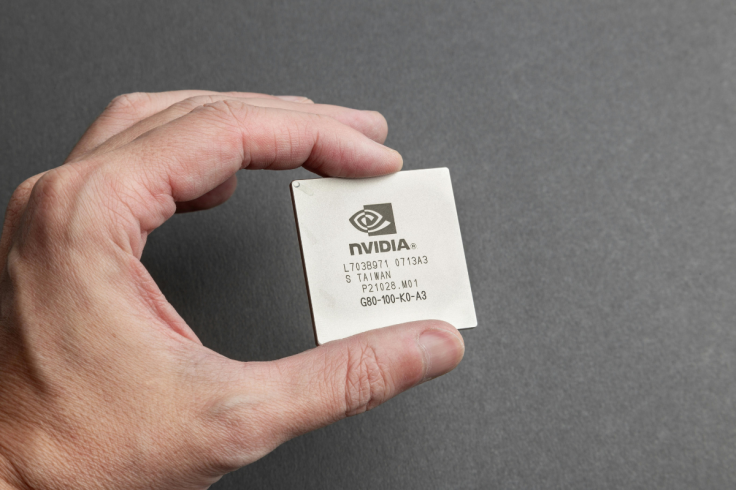Inside Nvidia–China Fallout: Tech Giant May Halt H20 Chip Production Over 'Security Concerns
Despite Nvidia's assurances, the production pause affects 300,000 units ordered from TSMC

Nvidia, the world's leading AI chipmaker, has reportedly instructed suppliers to halt production of its H20 chips, designed specifically for China, following Beijing's crackdown on purchases due to alleged security concerns.
The decision, impacting major suppliers like Amkor Technology, Samsung Electronics, and Foxconn, comes weeks after China's Cyberspace Administration summoned Nvidia over fears of backdoor vulnerabilities in the chips, threatening the company's £37.5 billion ($50 billion) market in China.
This fallout highlights escalating US-China tech tensions, with significant implications for Nvidia's global dominance.
Beijing's Security Crackdown Disrupts H20 Production
Nvidia's H20 chips, developed to comply with US export restrictions, were poised to resume sales in China after Washington approved export licenses in July 2025, following a £3.38 billion ($4.5 billion) inventory write-down in May due to an April ban.
However, Beijing's national security review has halted progress, with authorities urging firms like ByteDance, Alibaba, and Tencent to avoid H20 purchases, citing risks of remote surveillance or tracking features.
A Chinese state media account on WeChat, linked to CCTV, labelled the chips 'not safe' and technologically outdated. Nvidia CEO Jensen Huang, speaking in Taipei on 21 August 2025, said, 'We have made very clear and put to rest that H20 has no security backdoors.'
Despite Nvidia's assurances, the production pause affects 300,000 units ordered from TSMC, underscoring China's push for chip self-sufficiency.
Geopolitical Tensions and Revenue-Sharing Deal
The H20 fallout is compounded by a controversial US-Nvidia agreement, where Nvidia and AMD agreed to share 15% of China chip sale revenues with the US government to secure export licenses. Rep. Raja Krishnamoorthi, a key US lawmaker, criticized this as 'a dangerous misuse of export controls,' arguing it undermines national security for revenue.
The deal, generating an estimated £1.5 billion ($2 billion) for the US Treasury from Nvidia's projected £17.25 billion ($23 billion) in H20 sales by 2025, reflects a transactional approach to US trade policy.
X posts capture the tension: @zerohedge noted, 'Beijing urged firms to avoid Nvidia's H20 processors, complicating efforts to recoup billions.'
Top Overnight News
— zerohedge (@zerohedge) August 12, 2025
Beijing has urged local companies to avoid using Nvidia Corp.’s H20 processors, particularly for government-related purposes, complicating the chipmaker’s attempts to recoup billions in lost China revenue after the Trump administration reversed an effective US…
Similarly, @GlobeEyeNews stated, 'China asked companies to stop using H20 chips over data security concerns.'
China asked its companies to stop using or ordering Nvidia’s H20 chips over data security concerns. pic.twitter.com/hgA7Wznkbx
— Globe Eye News (@GlobeEyeNews) August 12, 2025
These restrictions could reduce Nvidia's China market share from 66% to 54% by year-end, per Bernstein Research.
Implications for Nvidia and Global AI Markets
The production halt threatens Nvidia's position in China, where demand for AI chips remains robust despite US restrictions. The H20, less advanced than Nvidia's H100, was designed to navigate export controls but now faces scrutiny as China accelerates domestic chip development, with firms like Huawei advancing alternatives.
Jeff Gertz of the Center for New American Security said, 'Either H20 sales to China are a security risk, in which case they shouldn't happen at all, or they're not—and then why impose an extra penalty?' The pause could cost Nvidia billions, following a £4.13 billion ($5.5 billion) write-down earlier this year, and may delay its fiscal Q3 growth projections of £33.75 billion ($45 billion).
Globally, the AI chip race intensifies, with China's DeepSeek chatbot highlighting its growing capabilities. Nvidia's pivot to a new, higher-performance chip for China, featuring NVLink technology, signals an attempt to regain market footing, but Beijing's distrust may reshape the tech landscape.
© Copyright IBTimes 2025. All rights reserved.





















